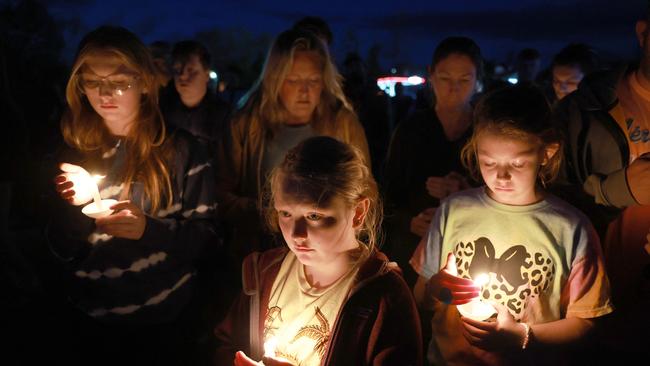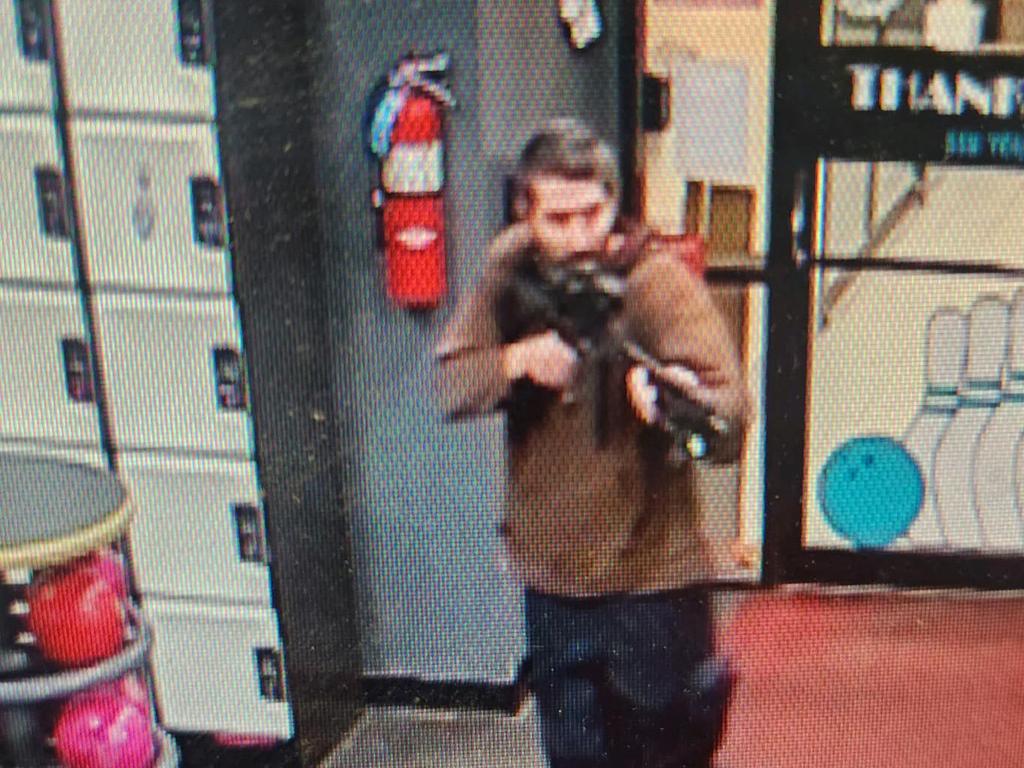Mental health loophole let Maine murderer buy guns
The body of Robert Card, a 40-year-old army reservist, was discovered on Friday night inside a tractor trailer.

The man who gunned down 18 people at a bar and a bowling alley and later committed suicide suffered serious mental health issues, but was able to buy weapons legally because he had never been forcibly committed to treatment.
The body of Robert Card, a 40-year-old army reservist, was discovered on Friday night inside a tractor trailer near a recycling centre where he used to work, said Maine public safety commissioner Mike Sauschuck overnight on Saturday. Card had shot himself.
Investigators are still struggling to determine Card’s motive for carrying out Wednesday’s massacre in the town of Lewiston.
However, Mr Sauschuck said Card had reportedly been hearing voices and suffering from paranoia. “Clearly there’s a mental health component to this,” he said.
Investigators found a “paper-style” note Card had left to a loved one that contained a password to his phone and bank account information, Mr Sauschuck said, adding that the note had the tone of a suicide letter. Card was found in possession of three weapons, one of them a long gun, all purchased legally because he had never been forcibly committed to a mental institution.
Despite the apparently clear mental health issues and a reportedly recent psychiatric evaluation undergone by Card, “a background check is not going to ping that this individual was prohibited”, Mr Sauschuck added.
The discovery of Card’s body ended a massive two-day manhunt, which had this quiet city of 38,000 people on lockdown, with businesses and schools closed and residents terrified.
Mr Sauschuck acknowledged the help Card’s family had provided to the investigation, saying his relatives were among the first people to call the police and identify the suspect.
“This family has been incredibly co-operative with us,” he said.
The US has recorded more than 500 mass shootings this year, according to the Gun Violence Archive.
AFP




To join the conversation, please log in. Don't have an account? Register
Join the conversation, you are commenting as Logout